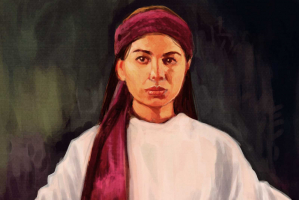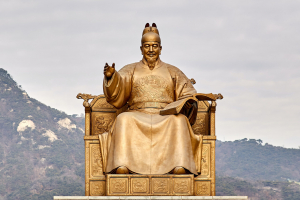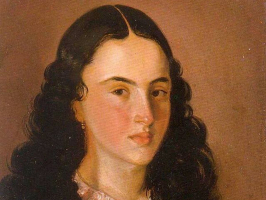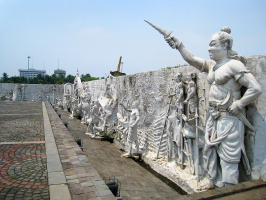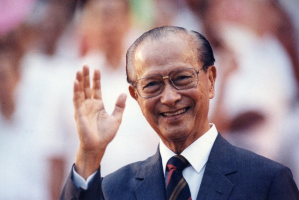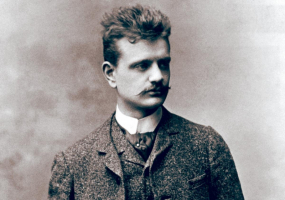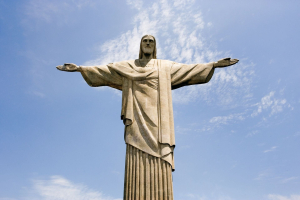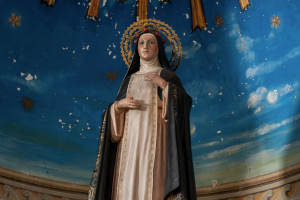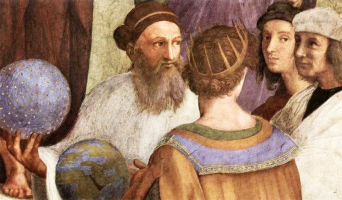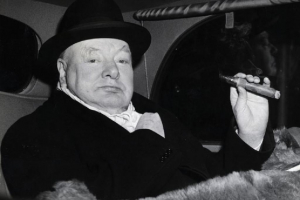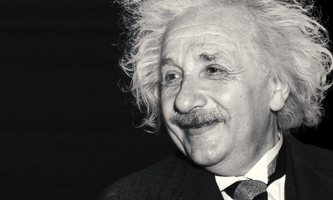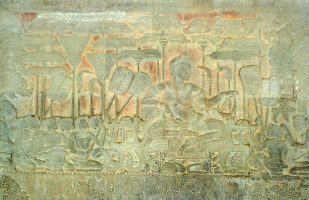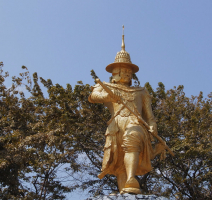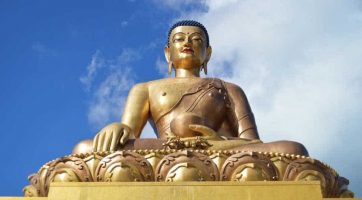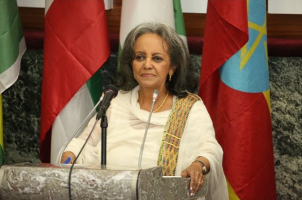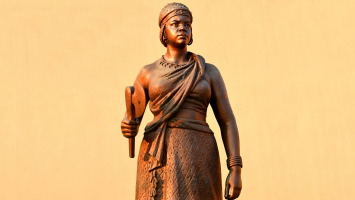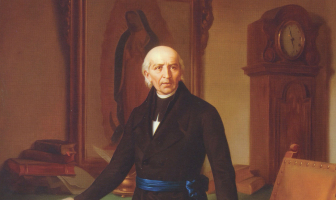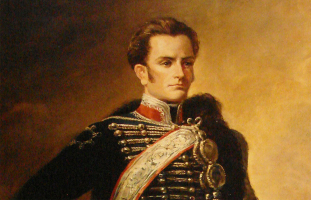Top 10 Most Important Historical Figures In Russia
History would not be half as interesting if it weren't for famous and iconic figures. These historical figures shaped events in the past, which influenced our ... read more...present and future. Russia has produced a slew of such figures who have achieved international acclaim for their actions and deeds. Check out this article to learn about the most important historical figures in Russia.
-
Catherine II (born Sophie of Anhalt-Zerbst; 2 May 1729 - 17 November 1796), also known as Catherine the Great, was Russia's last and longest-ruling Empress (1762-1796). Following the overthrow of her husband and second cousin, Peter III, she rose to power. Under her long reign, Russia experienced a renaissance of culture and sciences, which resulted in the establishment of many new cities, universities, and theaters, as well as large-scale immigration from the rest of Europe and the recognition of Russia as one of Europe's great powers.
Catherine frequently relied on her noble favorites in her accession to power and rule of the empire, most notably Count Grigory Orlov and Grigory Potemkin. She ruled during a period when the Russian Empire was rapidly expanding through conquest and diplomacy, aided by highly successful generals such as Alexander Suvorov and Pyotr Rumyantsev, and admirals such as Samuel Greig and Fyodor Ushakov. Following victories over the Bar Confederation and Ottoman Empire in the Russo-Turkish War, the Crimean Khanate was crushed in the south. Russia colonized the Novorossiya territories along the Black and Azov Sea coasts with the help of the United Kingdom. The Polish-Lithuanian Commonwealth, ruled by Catherine's former lover King Stanisaw August Poniatowski, was eventually partitioned, with the Russian Empire gaining the lion's share. Russians were the first Europeans to colonize Alaska in the east, establishing Russian America.
Catherine reformed the administration of Russian guberniyas (governorates), and she established many new cities and towns, including Odessa, Dnipro, Kherson, Mykolaiv, and Sevastopol. Catherine, a fan of Peter the Great, continued to modernize Russia along Western European lines. However, military conscription and the economy remained dependent on serfdom, and the increasing demands of the state and private landowners intensified serf labor exploitation. This was one of the main reasons for rebellions, such as Pugachev's Rebellion of Cossacks, Nomads, Volga Peoples, and Peasants.
Catherine the Great's reign is also known as the Catherinian Era. The Manifesto on Nobility Freedom, issued during Peter III's brief reign and confirmed by Catherine, freed Russian nobles from military or state service. The empress endorsed the construction of many nobility mansions in the classical style, which changed the face of the country. She is frequently counted among the enlightened despots. She presided over the Russian Enlightenment as a patron of the arts, including the establishment of the Smolny Institute of Noble Maidens, Europe's first state-financed higher education institution for women.
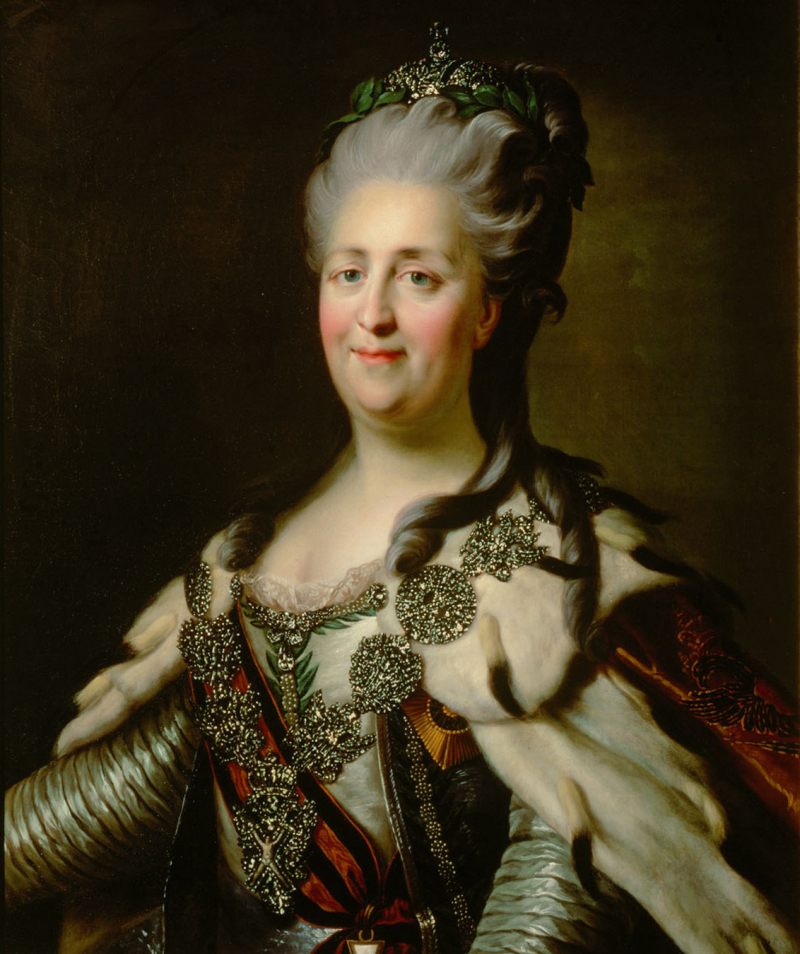
en.wikipedia.org 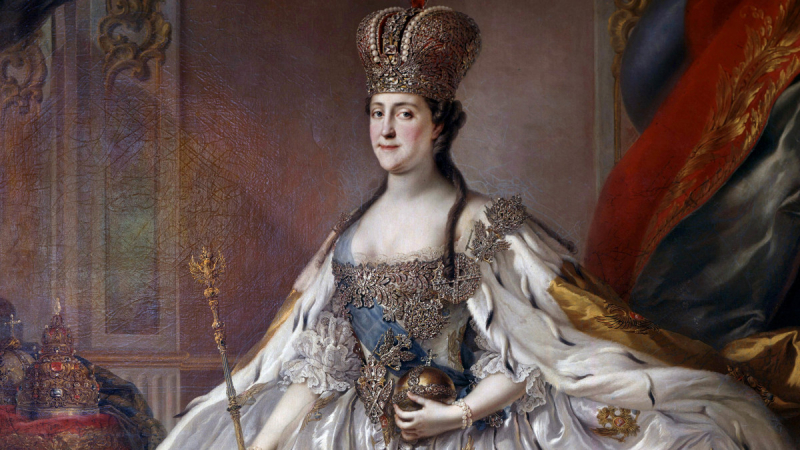
history.com -
Vladimir Ilyich Ulyanov, better known as Vladimir Lenin, was a Russian revolutionary, politician, and political theorist who lived from 22 April 1870 to 21 January 1924. From 1917 to 1924, he was the first and founding head of government of Soviet Russia, and from 1922 to 1924, he was the first and founding head of government of the Soviet Union. Russia, and later the Soviet Union, became a one-party socialist state ruled by the Communist Party under his administration. Marxist in ideology, his ideological developments are known as Leninism.
Following his brother's execution in 1887, Lenin embraced revolutionary socialist politics after being born into an upper-middle-class family in Simbirsk. Expelled from Kazan Imperial University for protesting against the Russian Empire's Tsarist government, he spent the years that followed pursuing a law degree. In 1893, he moved to Saint Petersburg and became a senior Marxist activist. In 1897, he was arrested for sedition and sentenced to three years in exile in Shushenskoye, Siberia, where he married Nadezhda Krupskaya. Following his exile, he relocated to Western Europe, where he rose to prominence as a theorist in the Marxist Russian Social Democratic Labour Party (RSDLP). He played a key role in the RSDLP's ideological split in 1903, leading the Bolshevik faction against Julius Martov's Mensheviks. Following Russia's failed Revolution of 1905, he campaigned for the First World War to be transformed into a Europe-wide proletarian revolution, which he believed, as a Marxist, would result in the overthrow of capitalism and its replacement with socialism. After the February Revolution of 1917 deposed the Tsar and established a Provisional Government, he returned to Russia to play a key role in the October Revolution that overthrew the new regime.
Lenin's Bolshevik government initially shared power with the Left Socialist Revolutionaries, elected soviets, and a multi-party Constituent Assembly, but by 1918, power had been centralized in the newly formed Communist Party. Lenin's regime redistributed land to peasants and nationalized banks and large-scale industry. It exited World War I by signing a treaty ceding territory to the Central Powers, and it promoted global revolution through the Communist International. Opponents were suppressed during the Red Terror, a violent campaign run by the state security services that resulted in the deaths of tens of thousands or internment in concentration camps. In the Russian Civil War from 1917 to 1922, his administration defeated right and left-wing anti-Bolshevik armies and oversaw the Polish-Soviet War from 1919 to 1921. In response to wartime devastation, famine, and popular uprisings, Lenin implemented the New Economic Policy in 1921. After 1917, several non-Russian nations gained independence from the Russian Empire, but three were re-united in the new Soviet Union in 1922. As his health deteriorated, Lenin died in Gorki, leaving Joseph Stalin as the preeminent figure in the Soviet government.
Lenin, widely regarded as one of the twentieth century's most significant and influential figures, was the posthumous subject of a pervasive personality cult within the Soviet Union until its dissolution in 1991. He rose to prominence as an ideological figurehead for Marxism-Leninism and a major influence on the international communist movement. Lenin, a contentious and divisive historical figure, is regarded by his supporters as a champion of socialism and the working class. Meanwhile, critics accuse Lenin of establishing a totalitarian dictatorship that presided over mass murders and political repression.
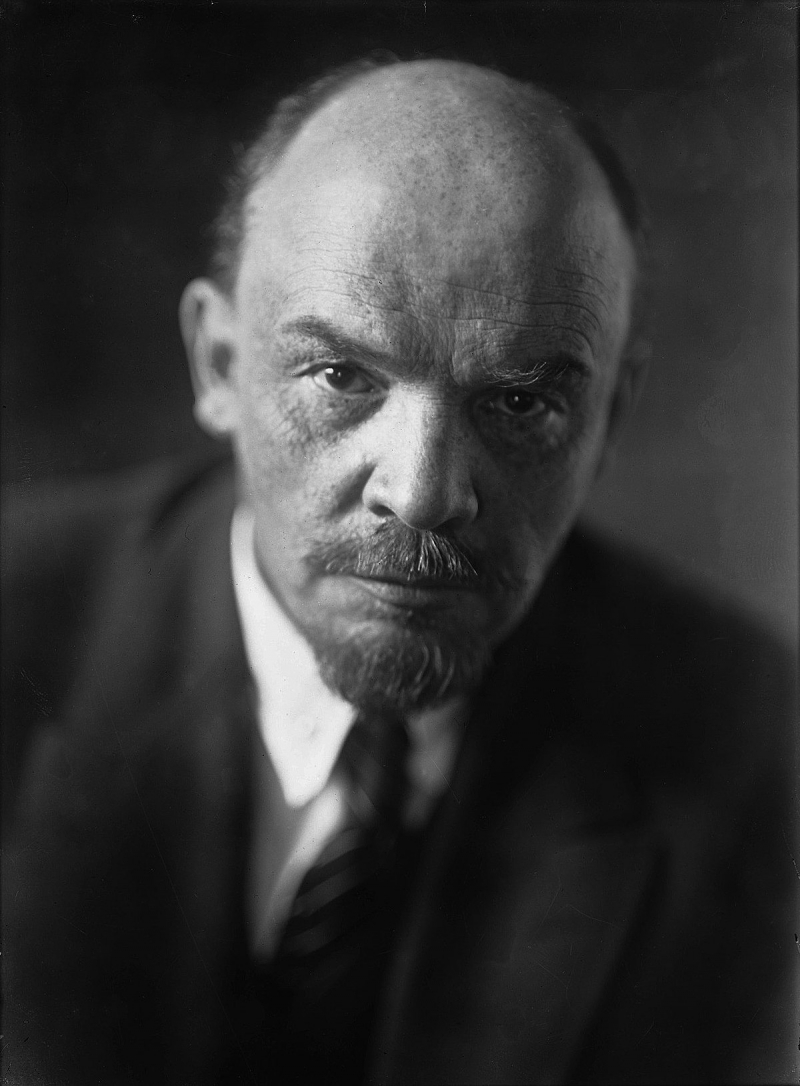
en.wikipedia.org 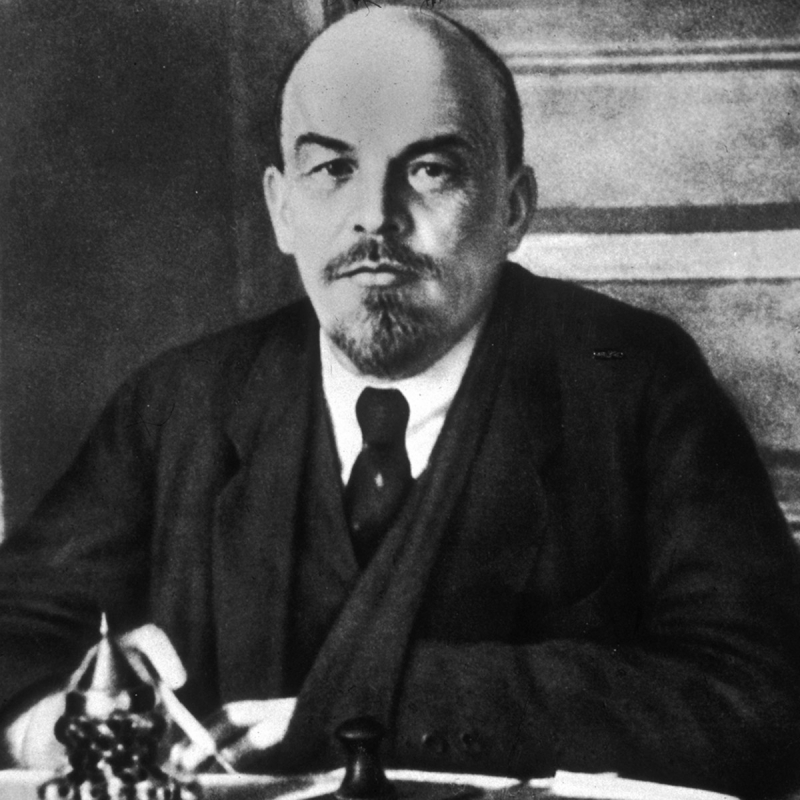
en.wikipedia.org -
Nicholas II, also known as Nikolai II Alexandrovich Romanov, (18 May [O.S. 6 May] 1868 - 17 July 1918), was the last Emperor of Russia, King of Congress Poland, and Grand Duke of Finland, ruling from 1 November 1894 until his abdication on 15 March 1917. Nicholas supported the economic and political reforms advocated by his prime ministers, Sergei Witte and Pyotr Stolypin, during his reign. He advocated for modernization through foreign loans and close ties with France, but he opposed giving the new parliament (the Duma) significant powers. Finally, Nicholas' commitment to autocratic rule hampered progress, strong aristocratic opposition and Russian military defeats in the Russo-Japanese War and World War I. By March 1917, public support for Nicholas had dwindled, and he was forced to abdicate the throne, bringing the Romanov dynasty's 304-year reign in Russia to an end (1613-1917).
The Anglo-Russian Convention of 1907 was signed by Nicholas to counter Germany's attempts to gain influence in the Middle East; it marked the end of the Great Game of confrontation between Russia and the British Empire. He aimed to fortify the Franco-Russian Alliance and proposed the unsuccessful Hague Convention of 1899 to promote disarmament and peaceful resolution of international disputes. Domestically, he was chastised for his government's repression of political opponents, as well as his perceived failure or inaction during the Khodynka Tragedy, anti-Jewish pogroms, Bloody Sunday, and the violent suppression of the Russian Revolution of 1905. His popularity was harmed further by the Russo-Japanese War, which resulted in the annihilation of the Russian Baltic Fleet at the Battle of Tsushima, as well as the loss of Russian influence over Manchuria and Korea, and the Japanese annexation of the south of Sakhalin Island.
During the July Crisis, Nicholas backed Serbia and authorized the mobilization of the Russian Army on July 30, 1914. In response, Germany declared war on Russia on August 1, 1914, and its ally France declared war on August 3, 1914, launching the Great War, later known as the First World War. The severe military losses caused a collapse in morale both at the front and at home; a general strike and mutiny in the Petrograd garrison sparked the February Revolution and the disintegration of the monarchy's authority. After abdicating for himself and his son, Nicholas and his family were imprisoned and exiled to Siberia by the Russian Provisional Government. After the Bolsheviks took power in the October Revolution, the family was imprisoned in Yekaterinburg and executed on July 17, 1918.
The Russian Orthodox Church Outside Russia, based in New York City, declared Nicholas, his wife, and their children martyrs in 1981. Their grave was discovered in 1979, but it wasn't recognized until 1989. Following the fall of the Soviet Union, the imperial family's remains were exhumed, identified by DNA analysis, and re-interred in St. Petersburg on 17 July 1998, exactly 80 years after their deaths. The Russian Orthodox Church canonized them as passion bearers in 2000. In the years since his death, Soviet historians and state propaganda have vilified Nicholas as a "callous tyrant" who "persecuted his own people while sending countless soldiers to their deaths in pointless conflicts." Despite being viewed more positively in recent years, historians generally agree that Nicholas was a well-intentioned but inept ruler who proved incapable of dealing with the challenges confronting his country.
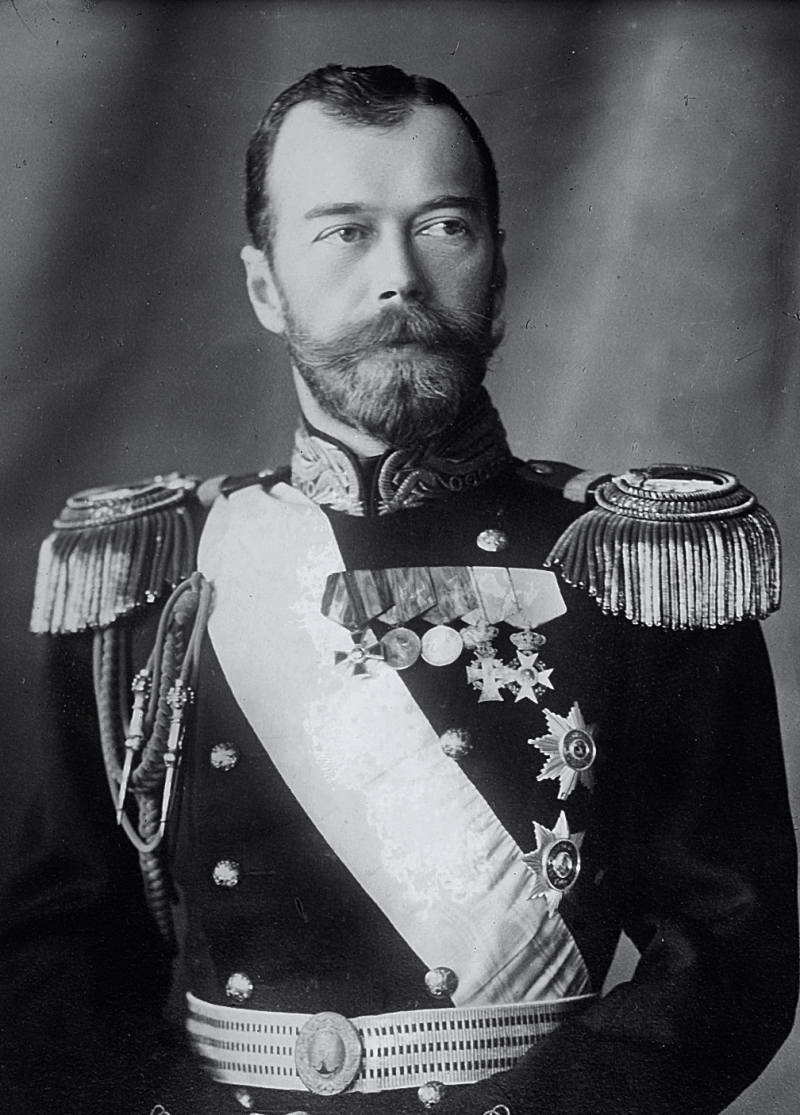
en.wikipedia.org 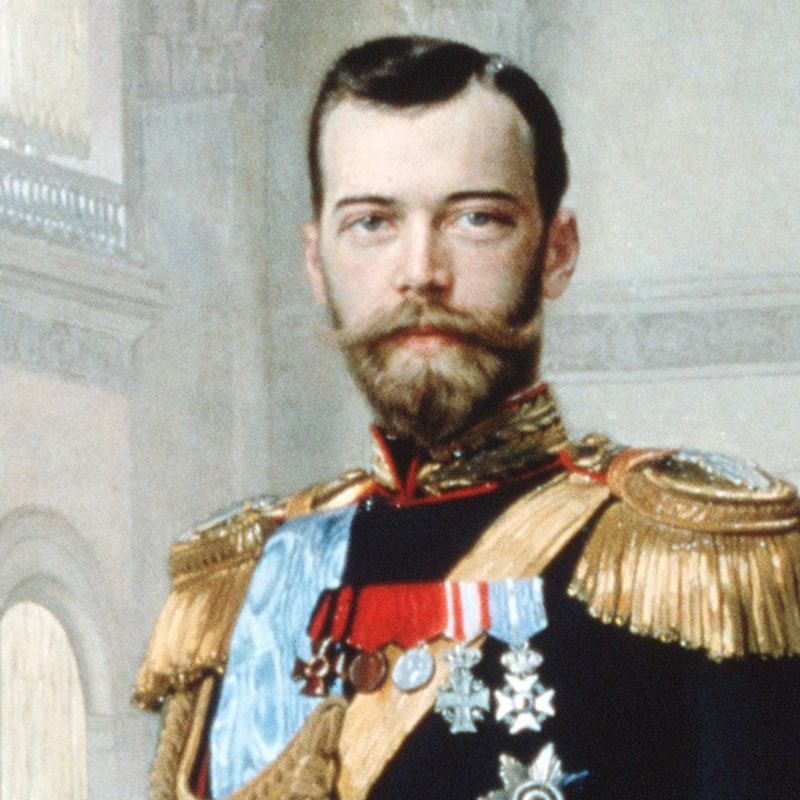
biography.com -
Peter I (9 June [O.S. 30 May] 1672 - 8 February [O.S. 28 January] 1725), also known as Peter the Great, was a Russian monarch who modernized the country and elevated it to European power status. From 7 May [O.S. 27 April] 1682 to 1721, he ruled the Tsardom of Russia, and later the Russian Empire, until his death in 1725, jointly ruling before 1696 with his elder half-brother, Ivan V.
Among the most important historical figures in Russia, Tsar Peter I laid the groundwork for the Russian Empire through decades of constant warfare, industrialization of the military economy, and administration of a tremendously rapidly growing population and expanding territory in the Tsardom inherited from Grand Duke Ivan IV Vasilyevich. The declaration came just months after the Treaty of Nystad in 1721. Following its loss of dominance over the Baltic Sea, Sweden is no longer recognized as an empire. During the reign of Peter the Great, the monarchy is reduced to a simple monarchy. Fighting throughout the Great Northern War with the Swedish Empire in alliance with the dominant Black Sea powers to prevent the former Moscovite Russian Grand Dutchy from capturing ports at Azov. Following the defeat of the Swedes, the Russian Empire began to challenge the Ottoman Sublime Porte's dominance over the Black Sea. The Russian Empire's aristocracy became intertwined in the circles of Europe's most powerful dynasties from this point forward, until the end of feudalism, the Great War. He led a cultural process marked by early industrialisation - the Russian Empire's entry into the age of enlightenment, supplemented by traditionalist and medieval social and political systems infused with progressive ideas spurring the Enlightenment. Peter the Great's reforms left an indelible mark on Russia, and many institutions of various Russian governments can be traced back to his reign. In 1721, he adopted the title of Emperor in place of the old title of Tsar, and founded and developed Saint Petersburg, which remained Russia's capital until 1918.
Saint Petersburg State University, the first Russian university, was founded a year before his death, in 1724. The second, Moscow State University, was established 30 years later, during the reign of his daughter Elizabeth.
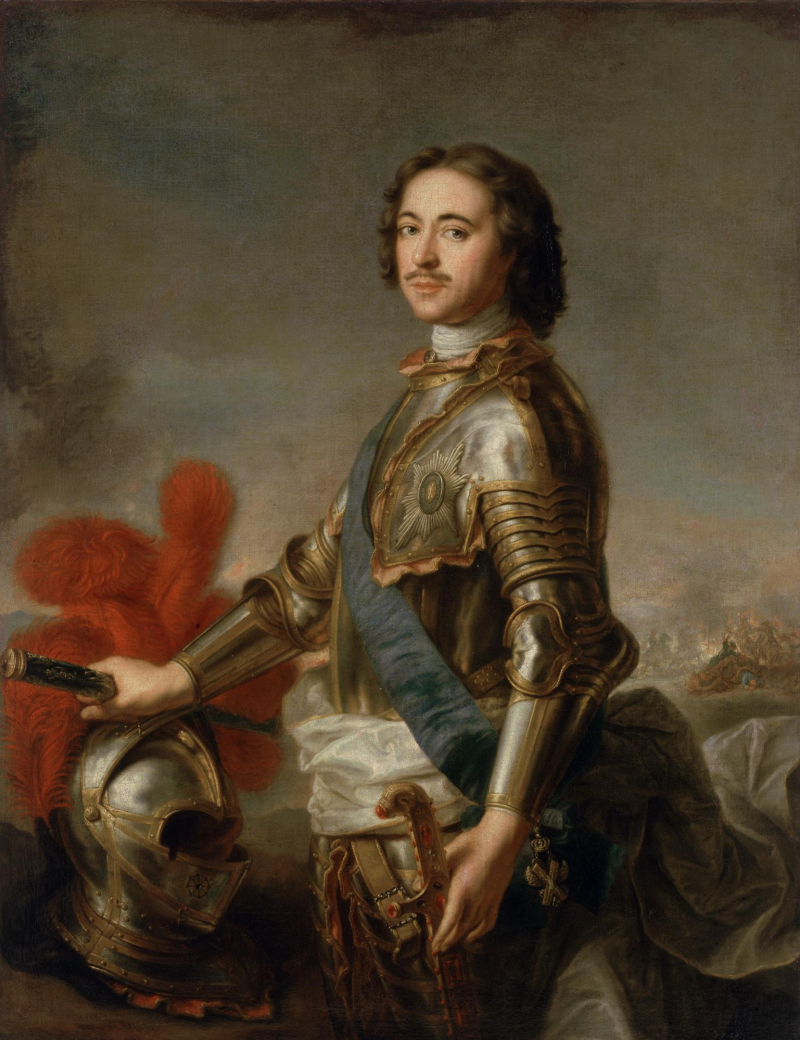
vi.wikipedia.org 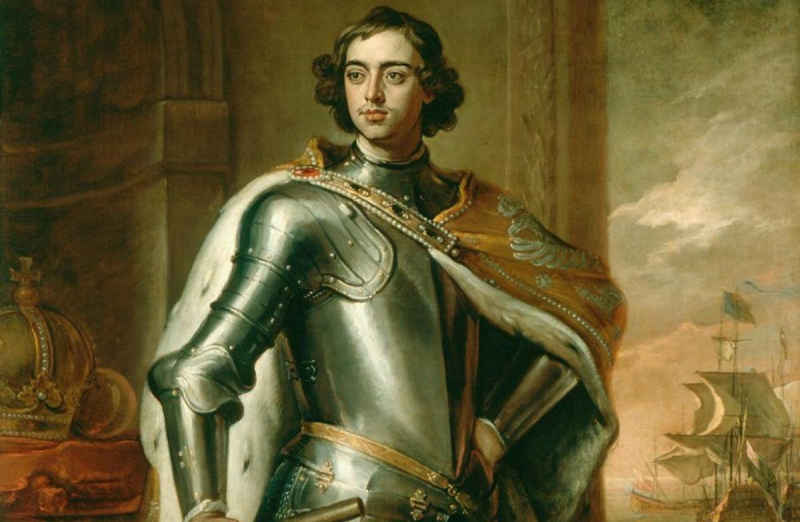
rmg.co.uk -
Ivan IV Vasilyevich (25 August 1530 - 28 March [O.S. 18 March] 1584), also known as Ivan the Terrible, was a Russian emperor, reigned as Grand Prince of Moscow from 1533 to 1547 and as Russia's first Tsar from 1547 to 1584.
Ivan was the Rurikid ruler of the Grand Duchy of Moscow, Vasili III. When he was three years old, his father died, and he was named grand prince. The "Chosen Council," a group of reformers, rallied around the young Ivan, declaring him tsar (emperor) of All Rus' in 1547 at the age of 16, establishing the Tsardom of Russia with Moscow as the dominant state. Ivan's reign was marked by Russia's transformation from a medieval state to an empire under the tsar, but at a huge cost to its people and the country's broader, long-term economy.
During his youth, the khanates of Kazan and Astrakhan were conquered. After consolidating his power, Ivan dismissed the "Chosen Council" advisers and launched the Livonian War, which ravaged Russia and resulted in the loss of Livonia and Ingria but allowed him to establish greater autocratic control over Russia's nobility, which he violently purged with the Oprichnina. The Massacre of Novgorod and the Tatar burning of Moscow marked the final years of Ivan's reign.
Contemporary accounts of Ivan's complex personality are contradictory. He was described as intelligent and devout, but prone to paranoia, rage, and episodic bouts of mental instability that worsened as he aged. He murdered his eldest son and heir, Ivan Ivanovich, in a fit of rage, and he may have also caused the miscarriage of the latter's unborn child. This left his younger son, the politically ineffective Feodor Ivanovich, to inherit the throne, a man whose rule and subsequent childless death directly resulted in the end of the Rurikid dynasty and the start of the Time of Troubles.
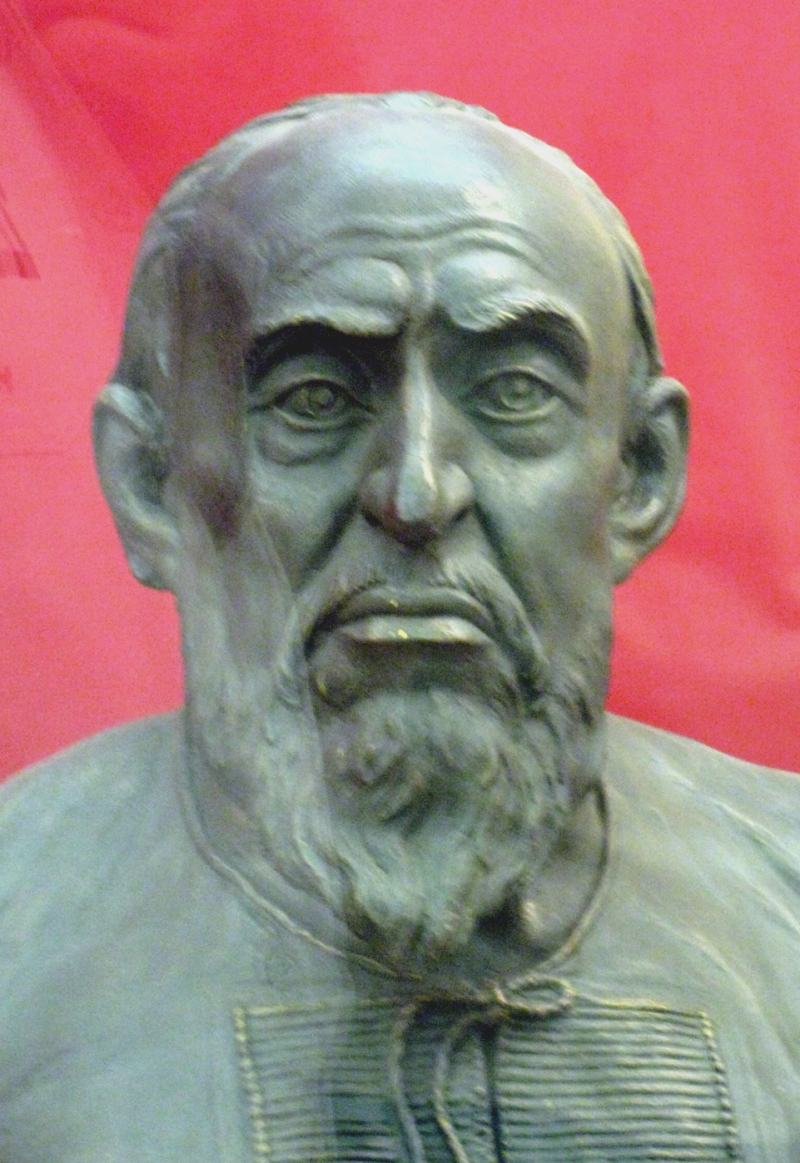
vi.wikipedia.org 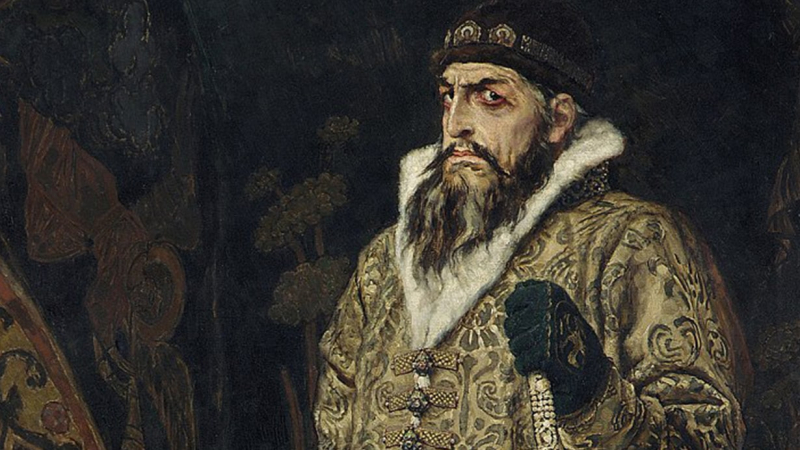
history.co.uk -
Alexander II (29 April 1818 - 13 March 1881) was Emperor of Russia, King of Congress Poland, and Grand Duke of Finland from 2 March 1855 until his assassination on 13 March 1881.
Among the most important historical figures in Russia, Alexander the Liberator is best known for his emancipation of Russia's serfs in 1861. Other reforms carried out by the tsar included reorganizing the judicial system, establishing elected local judges, abolishing corporal punishment, promoting local self-government through the zemstvo system, imposing universal military service, ending some nobility privileges, and promoting university education. Following an assassination attempt in 1866, Alexander took a more reactionary stance until his death.
Alexander shifted his focus to foreign policy, selling Alaska to the United States in 1867, fearing that the remote colony would fall into British hands if another war broke out. When Napoleon III fell in 1871, he moved away from bellicose France, and in 1872 he joined the League of the Three Emperors, which stabilized the European situation. Despite his otherwise pacifist foreign policy, he fought a brief war with the Ottoman Empire in 1877-78, resulting in the independence of Bulgaria, Montenegro, Romania, and Serbia, pursued further expansion into the Far East and the Caucasus, and conquered Turkestan, as well as approving plans for the Circassian genocide. Despite his disappointment with the outcome of the Berlin Congress in 1878, Alexander stuck to the terms of the agreement. An uprising in Poland in 1863 was one of his most difficult domestic challenges, to which he responded by stripping the country of its separate constitution and incorporating it directly into Russia. Alexander was assassinated in 1881 while proposing additional parliamentary reforms to counter the rise of nascent revolutionary and anarchistic movements.
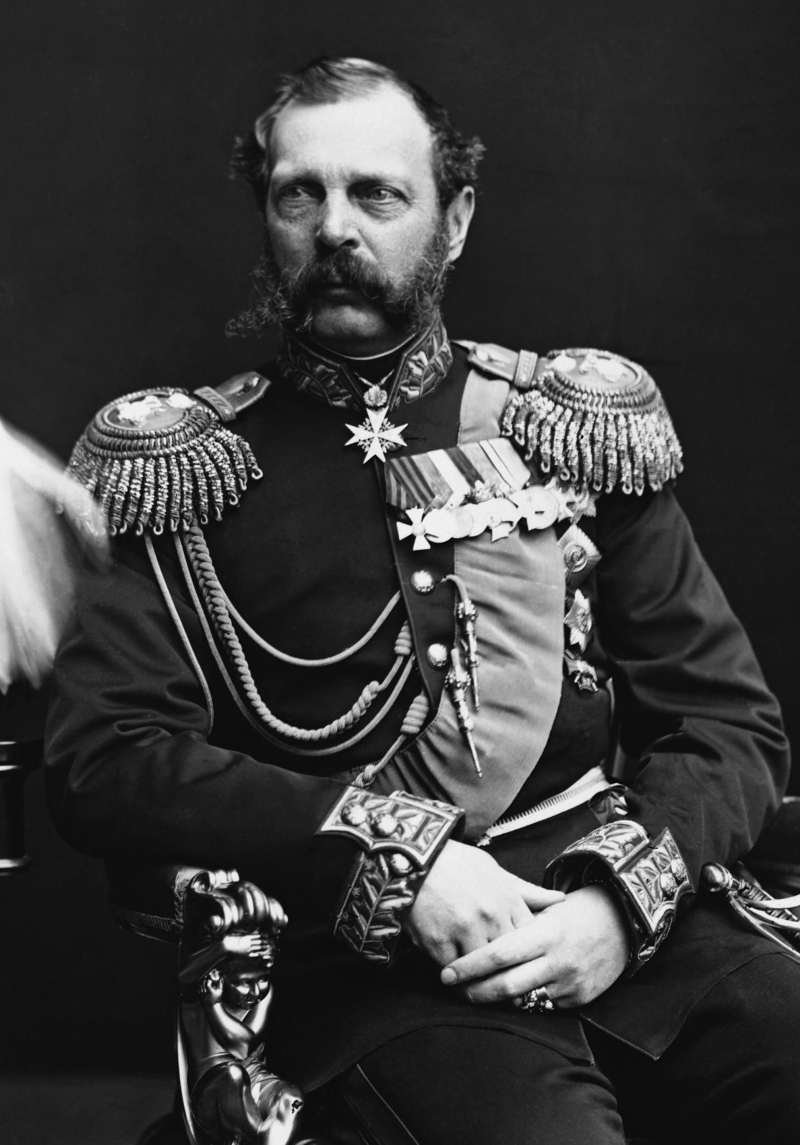
en.wikipedia.org 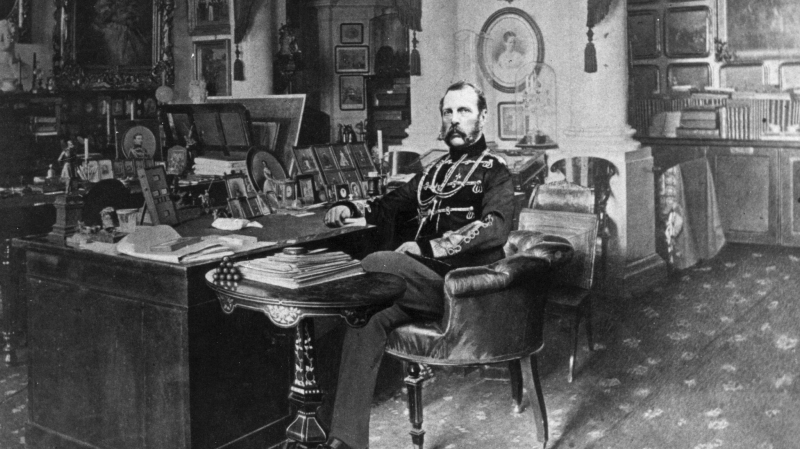
thoughtco.com -
Alexandra Feodorovna, Princess Alix of Hesse and by Rhine at birth, was the Empress of Russia as Emperor Nicholas II's consort from their marriage on 26 November [O.S. 14 November] 1894 until his forced abdication on 15 March [O.S. 2 March] 1917. She was Russia's last empress consort. A favorite granddaughter of Queen Victoria of the United Kingdom, she was one of the most famous royal carriers of haemophilia, like her grandmother, and bore a haemophiliac heir, Alexei Nikolaevich, Tsarevich of Russia. Her reputation for encouraging her husband's resistance to the surrender of autocratic authority, as well as her known faith in Russian mystic Grigori Rasputin, severely harmed her and the Romanov monarchy's popularity in its final years. Her entire family was murdered in Bolshevik captivity during the Russian Revolution in 1918. Saint Alexandra the Passion Bearer was canonized by the Russian Orthodox Church in 2000.
Alexandra and her immediate family were declared martyrs by the Russian Orthodox Church Outside Russia in 1981. Alexandra, her husband Nicholas II, their children, and others, including her sister Grand Duchess Elisabeth Feodorovna and the Grand Duchess's fellow nun Varvara, were canonized as saints and passion bearers by the Russian Orthodox Church in 2000.
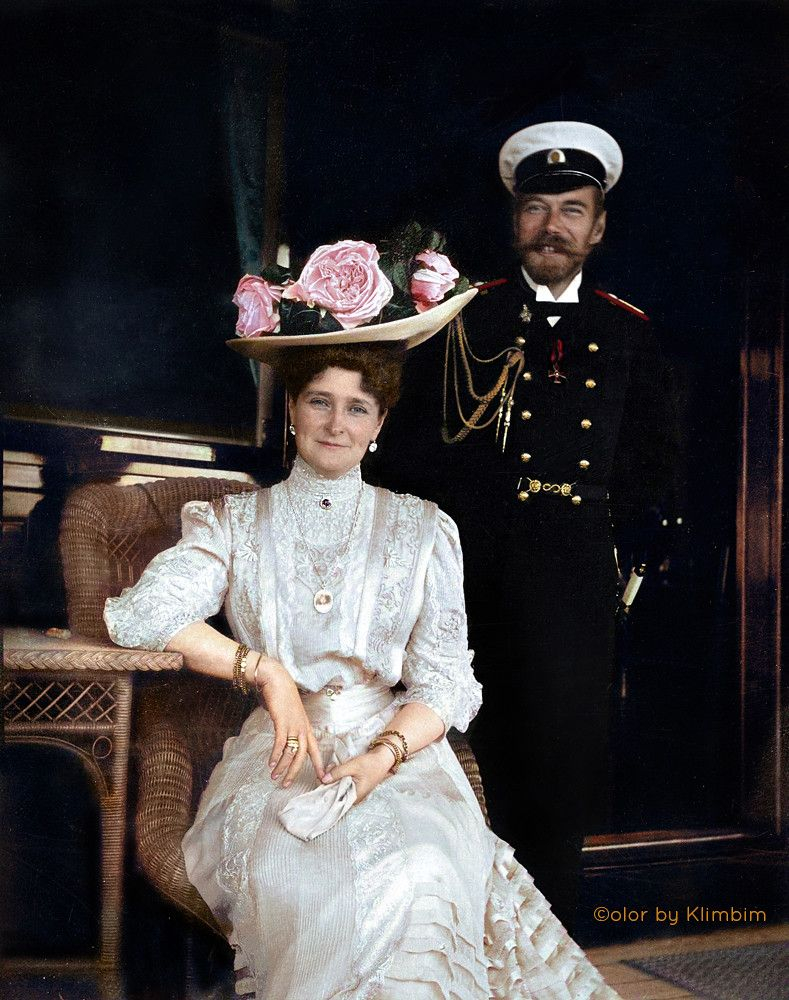
pinterest.com 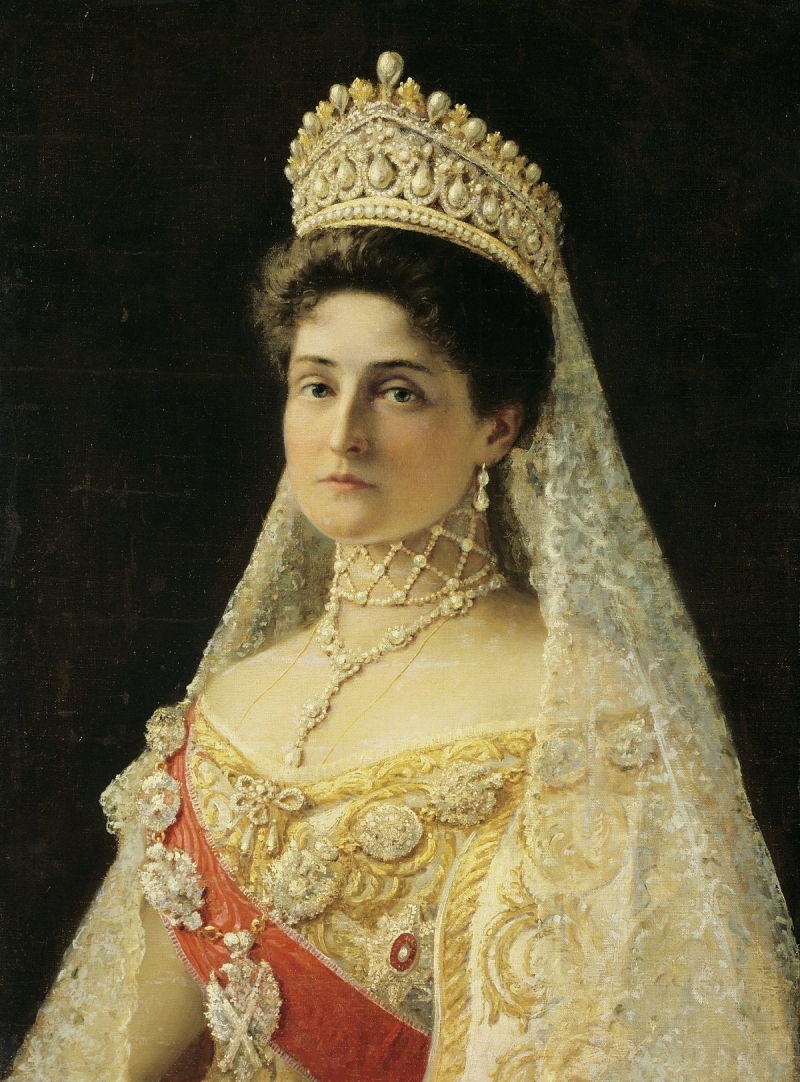
vi.m.wikipedia.org -
Paul I (1 October [O.S. 20 September] 1754 - 23 March [O.S. 11 March] 1801) was the Emperor of Russia from 1796 until his assassination on 23 March [O.S. 11 March] 1801. Officially, he was Peter III and Catherine the Great's only son, but Catherine hinted that he was fathered by her lover Sergei Saltykov. For the majority of his life, Paul was overshadowed by his mother. He established the Russian throne succession laws, which lasted until the end of the Romanov dynasty and the Russian Empire. He also intervened in the French Revolutionary Wars and, near the end of his reign, added Kartli and Kakheti in Eastern Georgia to the empire, which his son and successor Alexander I confirmed. .
From 1799 to 1801, he was de facto Grand Master of the Order of Hospitallers and oversaw the construction of several Maltese thrones. Paul's pro-German sympathies and unpredictable behavior made him unpopular among the Russian nobility, and he was assassinated in secret by his own officers.
Even though he was never officially canonized by any of the Orthodox Churches, there is evidence that Paul I was venerated as a saint among the Russian Orthodox population. Now he is among the most important historical figures in Russia.
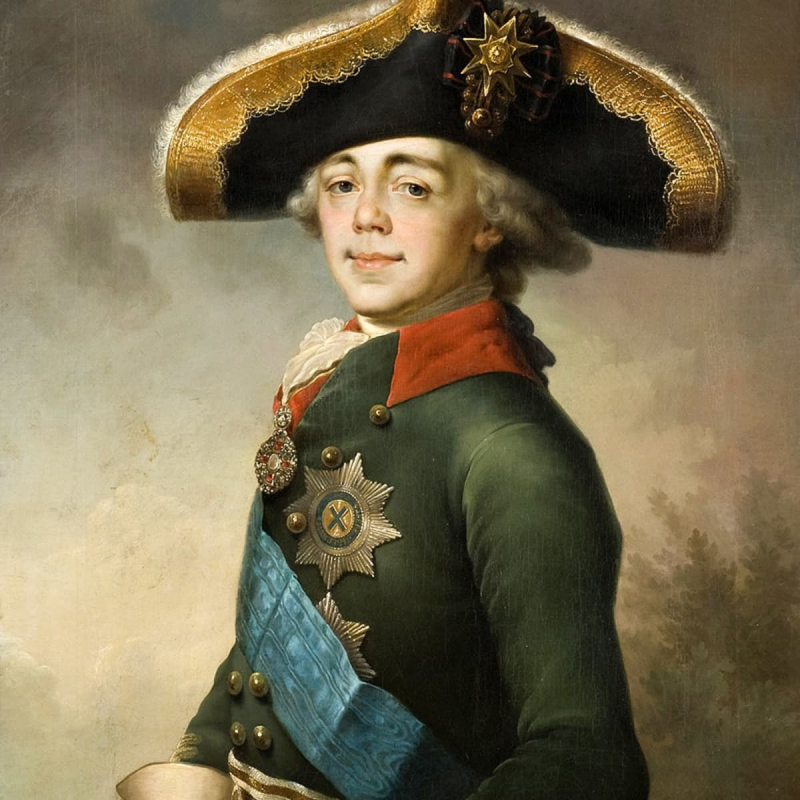
owlcation.com 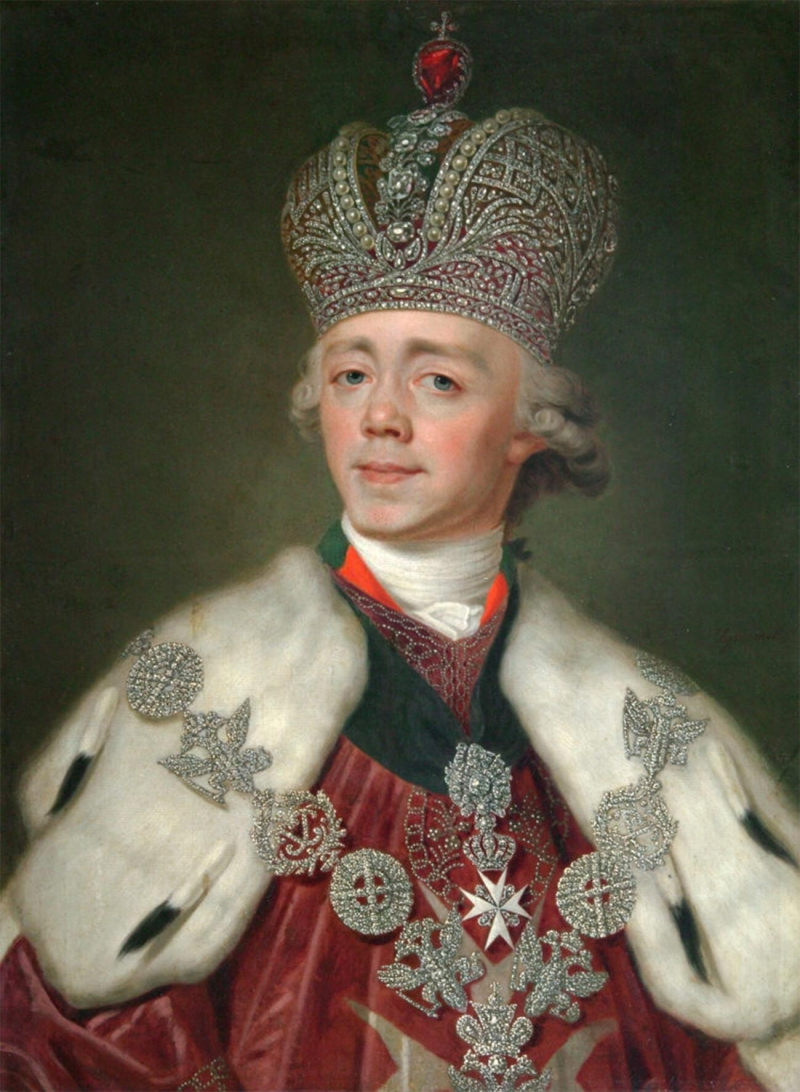
rbth.com -
Alexander I (23 December [O.S. 12 December] 1777 - 1 December [O.S. 1825]) reigned as Emperor of Russia from 1801, the first King of Congress Poland from 1815, and Grand Duke of Finland from 1809 until his death in 1825. He was Emperor Paul I's and Sophie Dorothea of Württemberg's eldest son.
Alexander, the son of Grand Duke Paul Petrovich, later Paul I, ascended to the throne after his father was assassinated. During the chaos of the Napoleonic Wars, he ruled Russia. As a prince and in the early years of his reign, Alexander frequently used liberal rhetoric while implementing Russia's absolutist policies. During his first years in power, he instituted minor social reforms as well as major liberal educational reforms, such as the establishment of more universities (in 1803-04). One of Alexander's closest advisors was Mikhail Speransky, the son of a village priest. The Collegia were replaced by the State Council, which was established to improve legislation. There were also plans to establish a parliament and sign a constitution.
Between 1804 and 1812, he changed Russia's position toward France four times, switching between neutrality, opposition, and alliance. He joined Britain in the War of the Third Coalition against Napoleon in 1805, but after massive defeats at the battles of Austerlitz and Friedland, he switched sides and formed an alliance with Napoleon by the Treaty of Tilsit (1807), and joined Napoleon's Continental System. Between 1807 and 1812, he fought a small-scale naval war against Britain, as well as a brief war against Sweden (1808-09) in response to Sweden's refusal to join the Continental System. Alexander and Napoleon couldn't agree on much, especially on Poland, and the alliance fell apart by 1810. Alexander's greatest victory came in 1812, when Napoleon's invasion of Russia proved a disaster for the French. He gained territory in Finland and Poland as part of the victorious coalition against Napoleon. He founded the Holy Alliance to combat European revolutionary movements that he saw as immoral threats to legitimate Christian monarchs. He also assisted Klemens von Metternich of Austria in suppressing all national and liberal movements.
During the second half of his reign, Alexander became increasingly arbitrary, reactionary, and fearful of plots against him, and as a result, he reversed many of his earlier reforms. As education became more religiously and politically conservative, he purge schools of foreign teachers. Speransky was replaced as advisor by Aleksey Arakcheyev, a strict artillery inspector who oversaw the establishment of military settlements. Alexander died of typhus while on a trip to southern Russia in December 1825. He had no legitimate children because his two daughters died when they were young. Neither of his brothers desired the position of Emperor. He was succeeded by his younger brother, Nicholas I, after a period of great confusion (which foreshadowed the failed Decembrist revolt of liberal army officers in the weeks following his death).
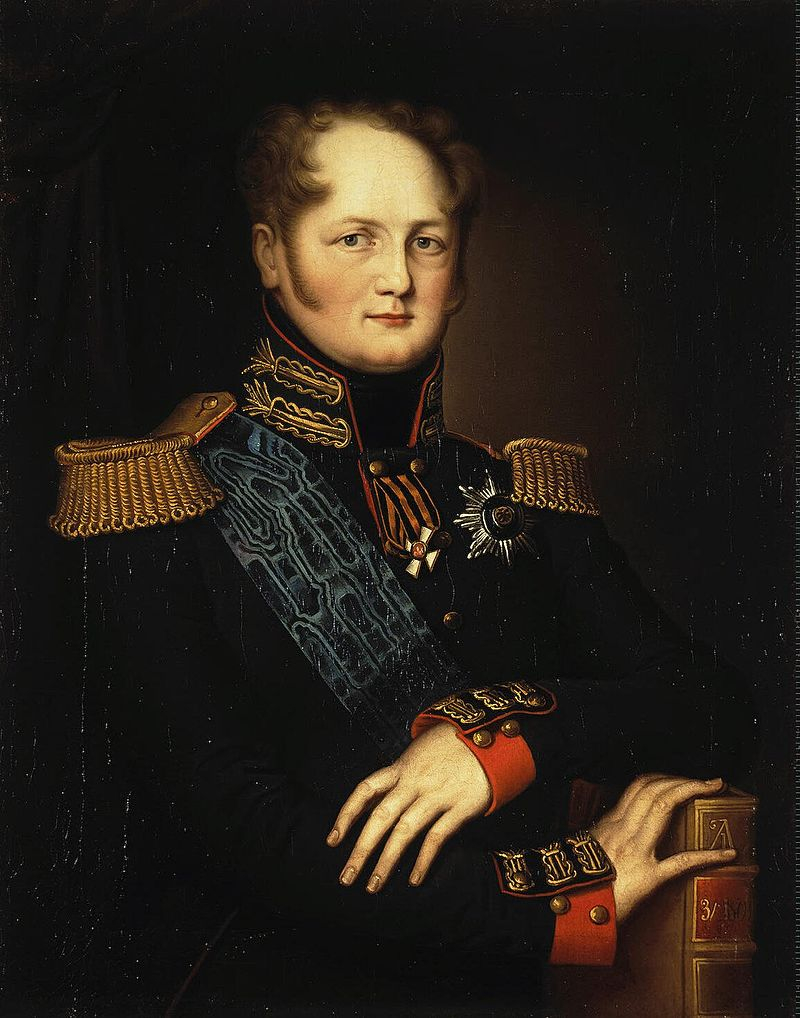
simple.wikipedia.org 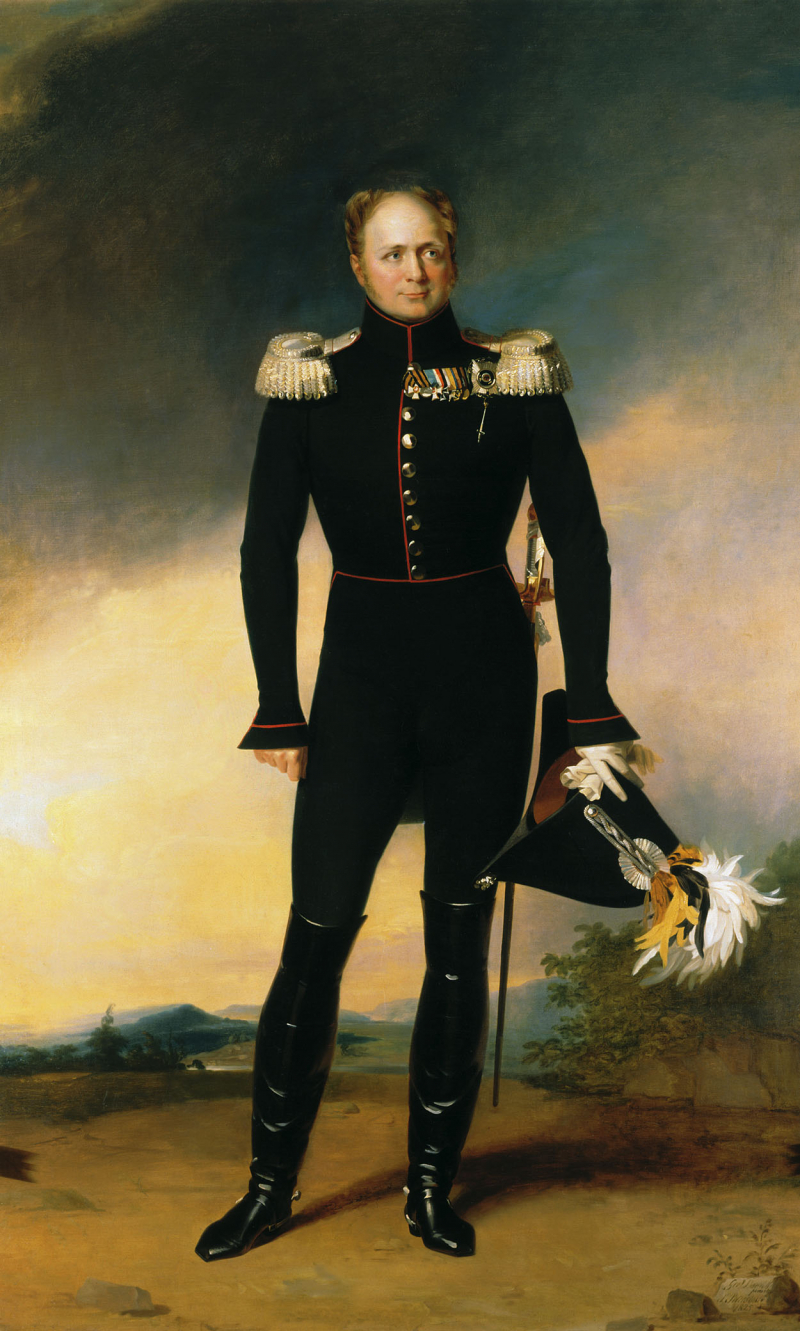
unofficialroyalty.com -
Peter III was a Russian emperor who was deposed by his wife, Catherine the Great, on 10 February 1728. Charles Peter Ulrich of Schleswig-Holstein-Gottorp (German: Karl Peter Ulrich von Schleswig-Holstein-Gottorp) was born in Kiel, the only child of Charles Frederick, Duke of Holstein-Gottorp (the son of Hedvig Sophia of Sweden, Charles XII's sister) and Anna Petrovna (the elder surviving daughter of Peter the Great). Peter III is regarded as one of the most important historical figures in Russia.
The German-born Peter III could barely communicate in Russian and pursued a staunchly pro-Prussian policy, making him an unpopular ruler. He was deposed by troops loyal to his wife, Catherine, the former Princess Sophie of Anhalt-Zerbst, a Russian nationalist despite her own German ancestry. As Empress Catherine II, she succeeded him. Peter III died in captivity soon after his overthrow, possibly with Catherine's blessing as part of the coup plot. Another theory holds that his death was unplanned and resulted from a drunken brawl with one of his bodyguards.
Despite his poor reputation, Peter III instituted some progressive reforms during his brief reign. He declared religious freedom and encouraged education, attempted to modernize the Russian army, abolished the secret police, which was notorious for its extreme violence, and made it illegal for landowners to kill their serfs without going to court. Catherine reversed some of his reforms while implementing others, most notably the annexation of church property.
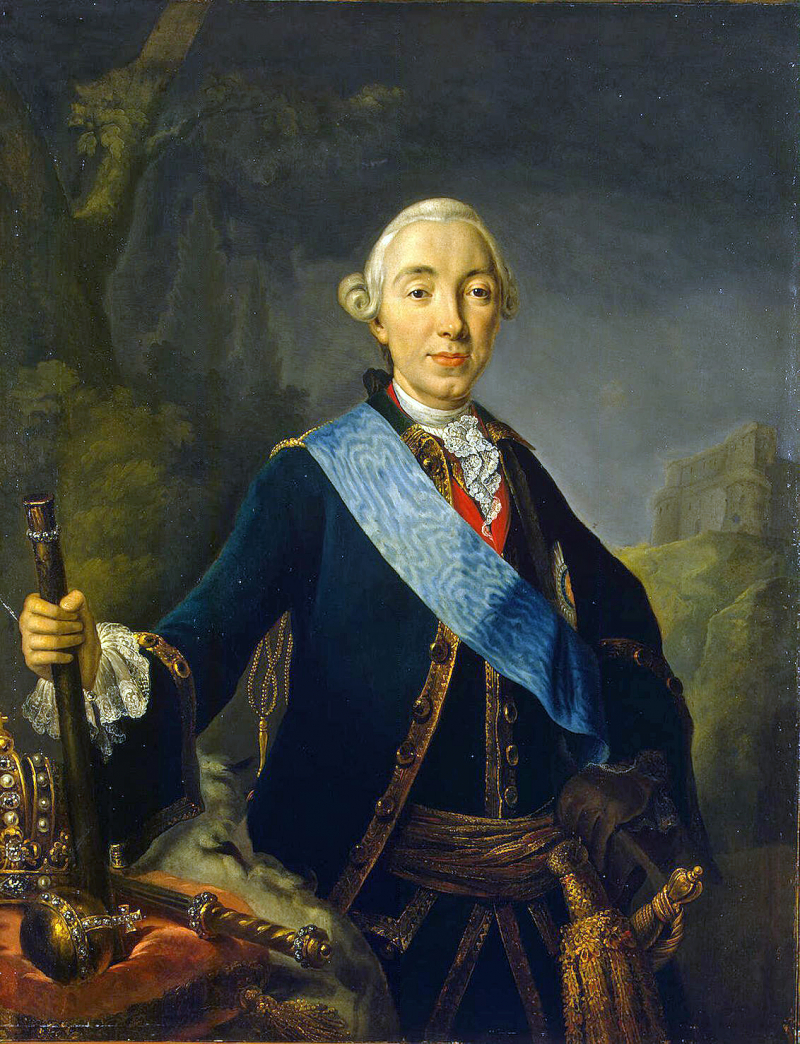
vi.wikipedia.org 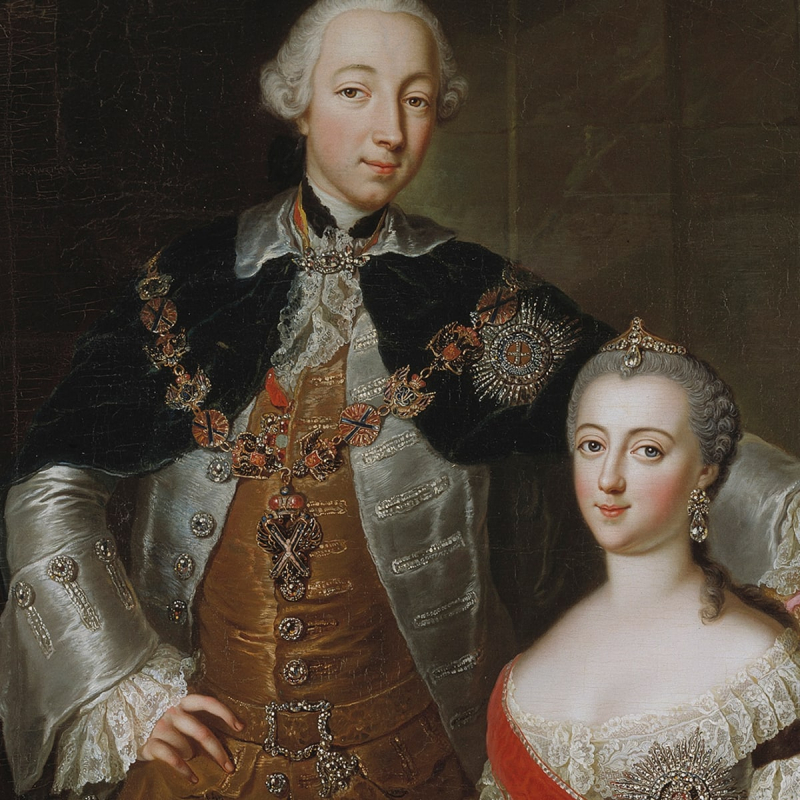
biography.com












